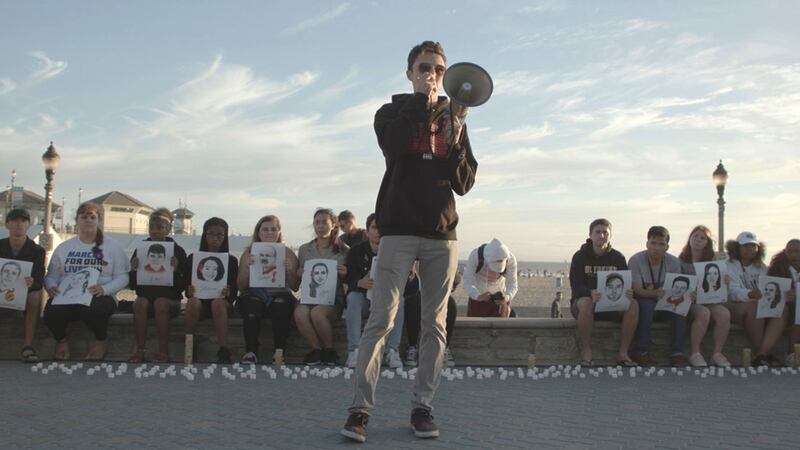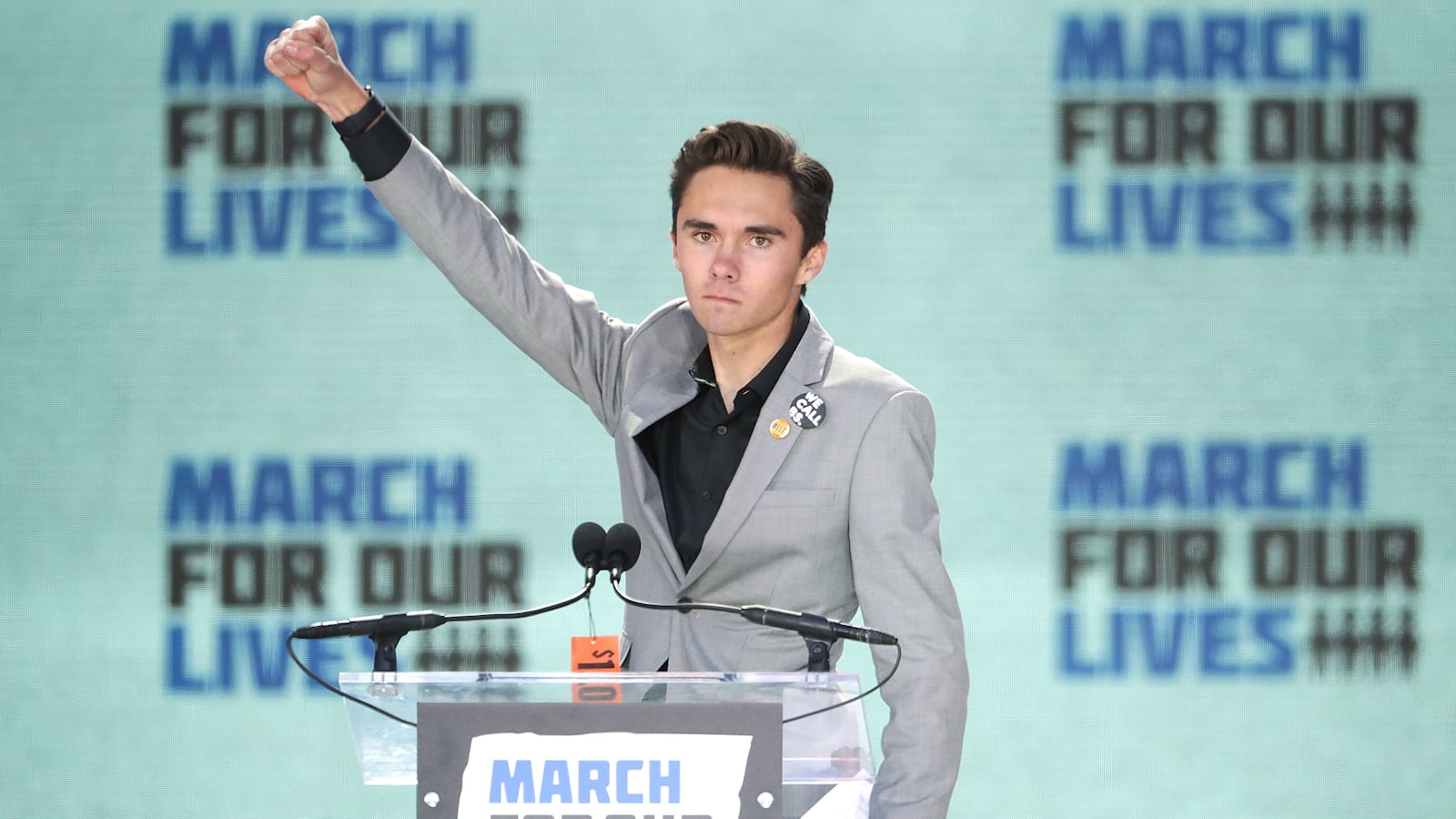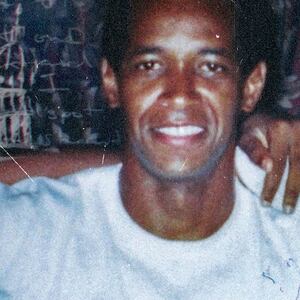David Hogg’s just finished his finals. It’s been three years since the Harvard sophomore took part in Us Kids—director Kim A. Snyder’s documentary capturing the aftermath of the 2018 shooting at Marjory Stoneman Douglas High School in Parkland, Florida—and co-founded March For Our Lives with his fellow survivors. They spent the summer after losing 17 of their classmates traveling the country pleading with lawmakers to stop accepting money from the NRA and encouraging people to vote. Now, with the country emerging from a yearlong quarantine and shootings on the rise, the question is: What’s changed?
“I think that we’ve seen a large increase in the number of states that have enacted Extreme Risk Protection Order laws,” Hogg told The Daily Beast over video chat, “which basically are a restraining order for guns, where if you’re a danger to yourself or others your guns can be taken away through a court order with a right to due process and counsel.”
In 2018, when March For Our Lives arrived in D.C. and hit the road to spread awareness, much of the group’s focus was on who could access guns and what kind of guns they could get their hands on. As one of the faces of this movement, Hogg faced ongoing harassment from conservatives and even became the subject of wild conspiracy theories claiming he was a crisis actor being coached by his father, a former FBI agent. And earlier this year, a 2019 video resurfaced of QAnon Rep. Marjorie Taylor Greene (R-GA) following him down the street and berating him over his beliefs. He doesn’t engage with her; in response to the clip, fellow QAnon conspiracist Rep. Lauren Boebert (R-CO) suggested he wasn’t “tough” enough.
“For me at this point, it’s no longer surprising since it’s happened so much,” Hogg said about incidents like these. “It’s just in that instance, she [Greene] happened to get elected to Congress and be stupid enough, in my opinion, to post it on the internet, because trust me, there are easily ten times more people like that that either recorded and never got elected to Congress or didn’t record it at all and just followed me and harassed me, tried to run me off the road, etcetera, absolutely crazy stuff.”
Us Kids shows Hogg processing this backlash in real time. Today, though he acknowledges it still “sucks,” he’s more at peace with all the harassment because it’s “a small price to pay” for the activism he’s committed himself to.
“What I think about are people like Manuel Oliver,” Hogg continued, “who fled Venezuela to come to the United States because of the violence in Venezuela, and moved to Parkland, Florida, as one of the safest communities in the United States… only to have his son [Joaquin] die in his high school and be stolen from him because of corruption and a political system that enables organizations like the NRA to subvert the majority will of the American people, which is that most of us agree that we should protect human beings more than we should protect guns.”
“Dealing with Marjorie Taylor Greene and getting my house swatted and all these death threats and letters… Ultimately, it’s nothing in comparison to what people like Manny and the millions of other people have had to go through,” he added. “They’re really the ones who need protection. They’re really the ones that need that attention, because their trauma remains after the cameras go away.”
What Hogg appreciates about the doc is how it captures the human toll of gun violence, moving past what he calls the “the mass shooter industrial complex.” He pointed to media that commodifies the shooter’s images, neatly packaged stories displaying body counts, and books about what caused someone to shoot: “I can summarize all those books for you... It’s because they were a racist or [a] xenophobic or Islamophobic individual or [an] antisemitic individual, in the case of my high school, that was not mentally ill and didn’t have some deep-rooted thing that caused it other than the very thing that we all know about, which is white supremacy and extreme intolerance in this country by white men that are enabled to act on this hatred by being able to access guns so easily.”
This brings us to what hasn’t changed in the past three years: addressing why gun violence happens in the first place. Stricter gun control legislation is only half the equation, and the solution isn’t one-size-fits-all for every community. Hogg wants to see more public health-based prevention programs that stop people from wanting to pick up a gun. He explained it using a metaphor he heard from a friend: “If you put two starving lions in a cage together, one of them is going to end up being killed and the other one is going to end up being hurt. And unfortunately, because a lot of resources that many of these communities have, or resources that they don’t have, this gun violence happens. So there needs to be a much broader holistic conversation around systemic racism, xenophobia, and purposeful white supremacist injustice that has been enacted upon so many communities in this country unfortunately.”

In February 2021, Hogg took a leave of absence from March For Our Lives after three years at its helm with his dozen-some cofounders, citing the fact that he simply needed a break. He says he’s still involved but focusing more on the big picture than the day-to-day details, which have been delegated to other team members who can continue to grow the organization beyond Parkland. In the same time frame, he made the “spontaneous” decision to launch Good Pillow, a progressive competitor to Mike Lindell’s MyPillow—but resigned just last month, leaving all shares to cofounder William LeGate. Hogg insisted his departure was “completely amicable,” that he left when he realized he’d overcommitted himself, and that LeGate can speak to what happened behind the scenes. (“There’s a whole bunch of other details there but I’m no longer involved,” Hogg said.)
For now, he wants to make more time to enjoy living in the present. He’s got summer school coming up soon, and his sights are set on graduation (and maybe law school down the line). “Although there are many, many people that have successfully dropped out of Harvard, that is not a path that I want to go down whatsoever,” he said. “I really just want to focus on being OK with not necessarily knowing what the future holds and being a college student.”


